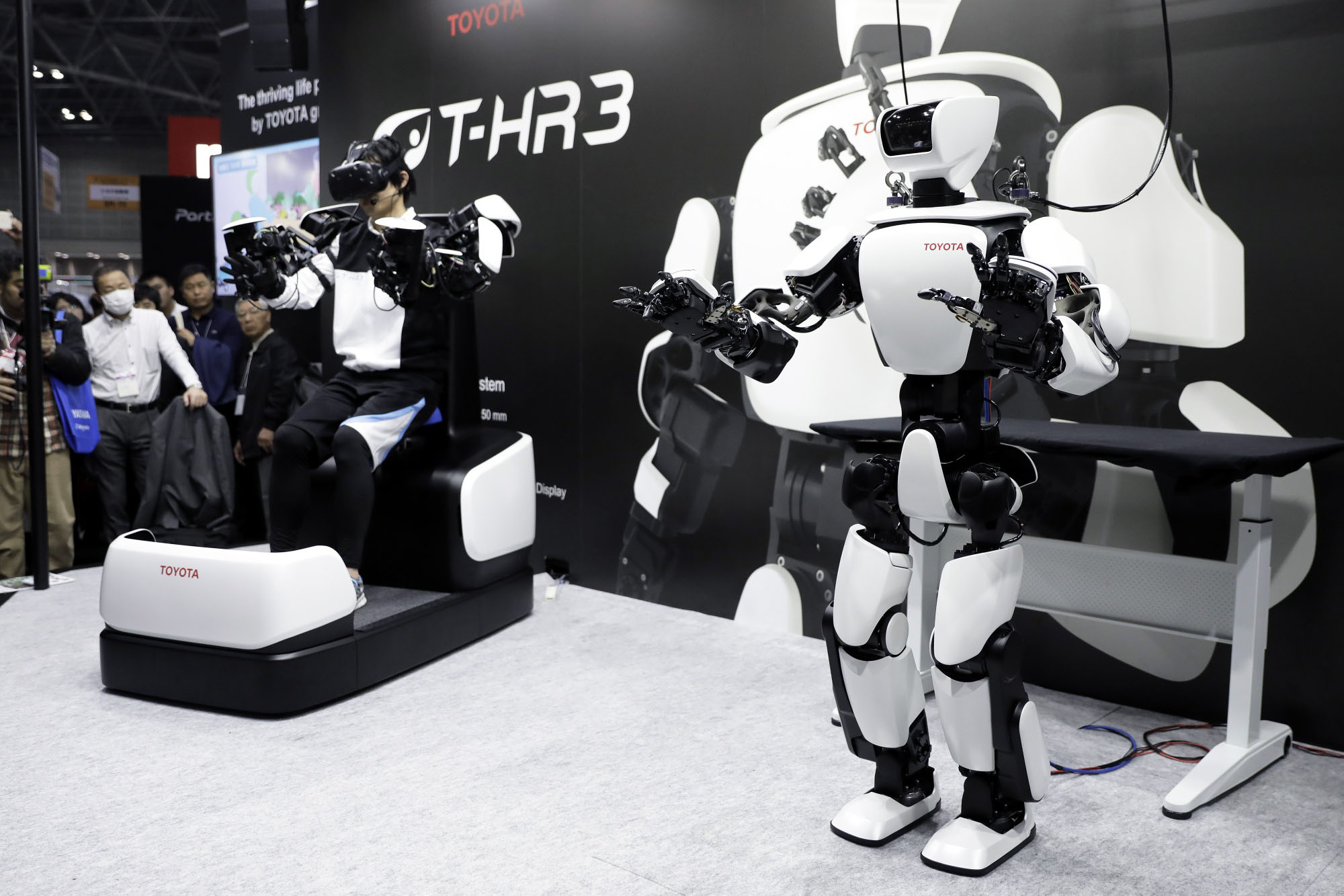Toyota Motor Corp. has sold enough cars to put one outside every Japanese home. Now it wants to put robots inside those homes.
Well-known for its automated assembly lines, Toyota envisions a not-so-far-off future in which robots transcend the factory and become commonplace in homes — helping with chores and even offering companionship, in an aging society where a quarter of the population is over 65 and millions of seniors live alone.
Machines have become much smarter in the past decade or so. Yet, every attempt to build one that can do simple things like load a washing machine or carry groceries encounters the same basic, physical problem: The stronger a robot gets, the heavier and more dangerous it becomes. What Toyota has going for it are $29 billion in cash reserves, a new artificial intelligence research center and a well-respected inventor, Gill Pratt, heading its efforts.

















With your current subscription plan you can comment on stories. However, before writing your first comment, please create a display name in the Profile section of your subscriber account page.